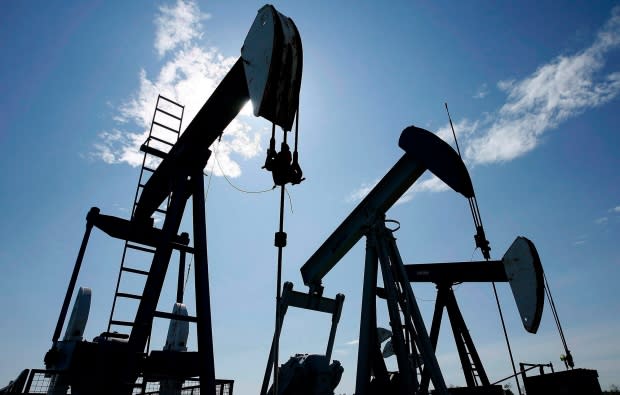Oil bottlenecks pose 'extraordinary' challenge for Western Canadian energy sector: report
Alberta's "ongoing and acute" issues with getting crude to market pose an "extraordinary" challenge for the province's energy sector, says a new report from Scotiabank Economics.
But it says the provincial government must set a "high" bar for intervening directly in the energy sector, adding it should only be done in "an effort to prevent extreme value destruction."
If the discounts ease up to more moderate levels next year, as Scotiabank anticipates, then "the payoff of government intervention is likely to be too small to justify the policy action."
Yet, if the discounts remain "persistently and exceptionally" wide, the report says such steps could be justified given the impact on companies' earnings and provincial royalty revenues.
Scotiabank's reports comes amid calls from some oil producers for Premier Rachel Notley to mandate production cuts to help shrink an oil glut weighing heavily on crude prices.
A shortage of pipeline capacity and oilsands production growth has led to bottlenecks that widened the usual price gap between Canadian crude and the American benchmark.

For weeks, the price of Western Canadian Select (WCS) has been tracking roughly $40 US a barrel less than West Texas Intermediate. Typically, it might track $12 to $15 below.
The widened oil price discount is costing some companies and the government dearly.
Scotiabank's report says under a scenario where the discount remains at $40 US through next year, the province could lose out on up to $4.1 billion in royalties, while the industry could be deprived of up to $39 billion in revenues.
However, Scotiabank economists expect the gap will average about $24 US a barrel through 2019 as oil production throttles back, U.S. refineries complete maintenance work and crude shipments by rail ramp up.
In that case, the cost to Alberta's coffers would be closer to $1.5 billion, while the industry would be deprived of roughly $15 billion in earnings from raw bitumen and conventional crude.
With an average $24 US discount, "that likely is not worth [a mandatory] … cut in production in order to get slightly narrower discounts," said Rory Johnston, a commodity economist with Scotiabank Economics in Toronto.
"However, if discounts remain persistently distressed around current levels in the … $40 WCS discount range, it could be in the interest of all involved for some kind of government managed curtailment on the production side."
Scotiabank is cautious in its discussion of such intervention, though.
"That we are even discussing such a policy option is far from ideal — the least expensive, cleanest and safest solution to this challenge remains the construction of additional pipelines," the report says.
But the analysis suggests if such policy action was deemed necessary it might also bolster the government's flexibility in responding to other sudden disruptions, like a pipeline outage.

